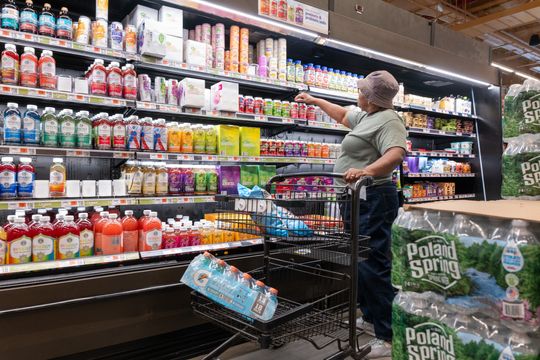
The U.S. economy grew briskly in the second quarter.
Gross domestic product rose at a 2.8% annual rate in the second quarter, adjusted for seasonality and inflation, the Commerce Department said Thursday.
That handily beat the 2.1% expected by economists polled by The Wall Street Journal. The second-quarter pace marked a sharp acceleration from a rate of 1.4% in the first quarter.
GDP is a broad measure of goods and services produced across the economy.
Thursday’s report provides a snapshot of how the economy is doing, two years after soaring inflation prodded the Federal Reserve to start raising interest rates at the fastest pace in decades. Higher rates are meant to slow the economy.
While the U.S. by many measures is doing well even amid high rates, and the pace of inflation has cooled, many Americans are unhappy that prices for groceries, cars and homes are so much higher than they were a few years ago.
And even though predictions of a recession have faded, there are signs of weakness.
A red-hot jobs market, which allowed millions of Americans to switch to jobs that paid more or fit them better, is starting to slow. Although the unemployment rate is still historically low, employers added jobs at a slower pace in the second quarter compared with the first.
Consumers are also facing mounting headwinds from still-high borrowing costs.
The spring home-buying season, usually the busiest time of year for the housing market, was a dud thanks to high prices and elevated mortgage rates. Sales of existing homes declined in June for the fourth straight month, but prices hit a record, locking out many would-be buyers.
Companies are warning that consumers are increasingly tapped out. Packaged-food giants PepsiCo and Conagra Brands earlier this month reported weak quarterly results and said they see U.S. shoppers under pressure. United Parcel Service this week lowered its revenue outlook for the year. The company said customers were trading down to cheaper options, like lengthier ground delivery.
“Right now is a moment when many consumers are feeling stretched with low confidence in the economy and with less money to spend on discretionary items,” Etsy Chief Executive Josh Silverman said at the company’s annual shareholders meeting last month. “But it’s a moment we believe will pass,” he added.


